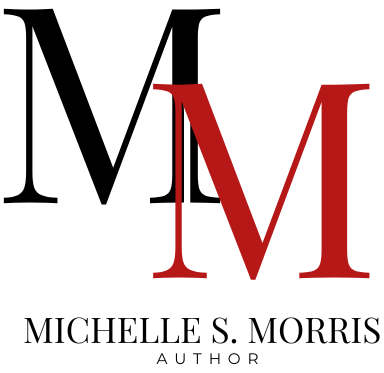Last night, after the wind outside had died down and the refrigerator was the only thing making noise, I finished reading Michelle Morris’s Comes Around. You know that weird silence that comes after reading a great book? That kind of quiet that doesn’t feel empty at all, but full, like the characters are still whispering in your head? That’s where I was when I turned the last page. Sitting in the glow of a single lamp, letting my tea go cold.
I didn’t expect to be so moved. That’s the truth. I thought I was settling in for something familiar, maybe even comforting, a return-to-hometown arc, a family reconnection, perhaps some complicated romance. But Michelle S. Morris did something more subtle, more intimate. She wrote a story about returning to yourself, cloaked in the quiet chaos of a woman going home.
Halley McCarthy is one of those characters who doesn’t ask you to like her. She just shows up, exhausted, bone-deep, and lets you decide. She drives into her old town, her car packed with remnants of a life that no longer fits, with the precision of someone who’s been strong too long. Even at first, I was struck by how much Halley holds back not just from the people in her life, but also from the reader. And it does work. It draws you in and makes you want to stay close to see what she isn’t saying.
Maybe I connected with her more than I meant to. Maybe we all have our own versions of a “career gone sideways,” of a love story that fell apart in our hands. Maybe you’ve also stood at the edge of a place you once called home and thought, Am I allowed to come back? Am I allowed to be different now?
The world Halley returns to is complex, not just the small town with its patchwork of memories, but the family she’s been orbiting for years without really landing. Her father, Irish McCarthy, is a fascinating presence. A biker, a patriarch, a man who has built both a legacy and a fortress. Their relationship is the book’s emotional core. He doesn’t act nice for the reader, but in those quiet father-daughter scenes, like when he tucks her in without saying a word or sits next to her while she tries to choke down memories and French fries, you can feel the kind of love that doesn’t need to be explained.
The writing itself has a lived-in quality. There’s a texture to Morris’s language, something tactile. She’s not afraid to linger on smells, the way the earth clings to boots, the jarring flatness of silence when grief is loud in your chest. I noticed how she lets Halley remember in smells and sounds: the perfume of her long-gone mother, the soft crunch of leaves beneath her childhood boots. These aren’t just literary devices; they’re truths. That’s how memory works. That’s how it clings to us, through scent and sound more than fact.
The family bar is called the Roost. I could see the worn floors, the curve of the bar, and how a place can become history just by having people there for a long enough time. The cast of characters that orbit Halley’s return are familiar in the best way: siblings full of grudges and jokes, a stepmother who never quite fit, a younger sister who adores her without condition. They’re messy, loving, territorial, and real. I felt like I was watching a family dinner unfold from the corner of the room, biting my lip not to laugh or cry.
There is also suspense here, but not the loud kind. The mystery of what really went wrong in San Francisco and the question of who is watching Halley and why? Always there, just below the surface. There are moments of danger, obsession, and decisions made in the past that are now coming back to haunt the present. But Morris doesn’t let that side story take over the main story. Instead, it enhances the sense that life, even when it’s quiet, can be complicated and full of consequences.
And maybe that’s what I liked best about it. The refusal to make things easier. Halley isn’t broken in a way that makes you want to fix it. She’s not sure. She is afraid. But she’s also making an effort. She’s doing what so many of us do when the map falls apart: we trace our way back to somewhere familiar, hoping it might help us find who we were before the detours.
There was a moment, somewhere in the third act, when Halley realizes that failure isn’t the opposite of success. It’s just part of the story. Not a pit you fall into, but a bend in the road. That hit me harder than I expected. I thought about all the things we think we have to do before we can rest and how we judge ourselves. And here was this made-up woman, tired and not sure what to do, still trying to choose hope.
When I finished Michelle’s Comes Around, I didn’t want to say goodbye. Not because the story wasn’t finished, it was, but because these characters had snuck in. They’d made a home in that quiet part of the brain where stories go when they’ve meant something. I wanted more mornings with Halley. More kitchen-table conversations. More glimpses of a woman learning how to stay.
If you’ve ever needed to start over, or if you’re just wondering if it’s too late to do so, this book will sit beside you like a friend who knows when not to speak. And when it does speak, it says things worth hearing.
Maybe even things you didn’t know you needed to hear.


